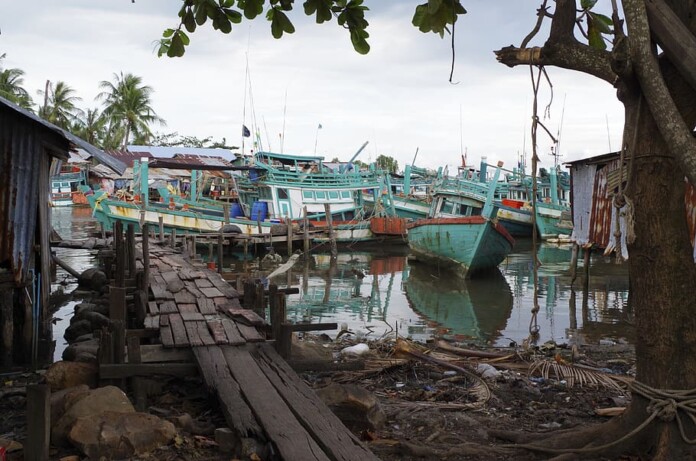India’s hot eco-sensitive tourist destinations are beginning to pose a major threat to local population and to the ecosystem. It is a good time India starts earmarking destination capacities keeping the long-term tourism potential and ecosystem preservation in mind.
Doug Lansky, a travel writer turned tour organizer, discusses in his recent TED talk emphasised the concept of “Destination Capacity” as a key factor in to manage eco-sensitive tourist destinations better. Drawing a comparison to theme parks, Lansky highlights how they efficiently manage capacity by adding more experiences when footfall decreases. Lansky suggests implementing limits and setting a cap on tourism capitalization, thereby aiding organizations in adopting eco-tourism practices.
Some destinations around the world have already adopted visitor limits as a means of sustainable management. For instance, “The Wave” in Utah permits only 64 visitors per day, allocated through a lottery system. By restricting tourist footfall, these places can grow organically while preserving their natural and cultural heritage.
It is high time India makes a beginning in setting destination limits in a few eco-sensitive destinations such as backwaters in Kerala, Ladakh, Himalayan foothills, tiger reserves and a few more.
The backwaters of Kerala, India, form a labyrinth of interconnected lakes, meandering streams, and serene lagoons, harbouring a truly unique and captivating ecosystem. In 2017, Kerala witnessed a staggering influx of over 15 million tourists, drawn to the allure of its backwater cruises in the iconic houseboats known as Kettuvallams. This surge in popularity has had a profound impact on the region, particularly along the Alleppey backwaters, where approximately 70% of households are engaged in providing tourist services in various capacities.
Direct Impact on our Ecosystem
However, the rapid growth of the houseboat industry has brought forth a range of pressing concerns. The number of houseboats operating on the backwaters has exceeded sustainable capacity, with more than 1,000 boats currently in operation, many of them are unregistered. The environmental implications are dire: a single houseboat can generate up to 1,000 litres of waste per day.
Unfortunately, lax regulations have enabled the majority of these houseboats to discharge sewage directly into the water, compounding the contamination of the backwaters. Moreover, emissions and oil leakages from these vessels, coupled with the improper disposal of plastics and other inorganic waste, have further deteriorated the ecological health of this cherished natural resource.
This not only affects the ecosystem but also affects the quality of life of the locals. Pollution from sewage dumping, salinization, sand dredging, and other disruptive activities have deeply impacted the lives of the local communities residing along Kerala’s backwaters. These communities have a strong connection to the waterways, with their traditions and cultural practices intertwined with these aquatic resources. However, the deteriorating conditions have led to significant challenges.
The backwaters are contaminated, leaving a glossy residue and an oily taste that poses health risks. The pollution also affects the adjacent paddy fields, leading to illnesses such as skin diseases. Furthermore, the invasion of privacy by tourist houseboats has further compounded the difficulties faced by the residents. Kerala’s tourism case study is just one of many.
Way Forward
It is important to define the word success of tourism, especially eco-tourism. First and foremost, the quality of life of locals must be protected at any cost. As seen in the case of Kerala, tourism is not sustainable if it brings health threats to the locals.
Secondly, organizers must work along with the locals, to help boost local economic impact. One such travel company called Kabani Tours is working with the local farmers in a small town called Thekkumthara in Wayanad, to help recover farmlands destroyed by floods in Kerala.
This place was the most affected by the floods, and many farmers lost their livelihoods.
Sumesh, the founder of Kabani, created travel experiences, to bring travellers, Adivasis and farmers together. This activity engaged 100 travellers who wished to experience farming first-hand and contributed to recovering the lost lands, thus providing investment to farmers without any interest.
Spiti Ecosphere is an eco-travel organizer that works with locals to uplift the resident communities and protect the destination. Besides responsible tourism, they also offer opportunities to volunteer in exchange for food and stay. Volunteers can help build greenhouses for the locals to grow food in the harsh winters, engage in farming activities and live like a local.
In response to a growing trend, travellers today are increasingly seeking more intimate and authentic experiences while visiting destinations. They yearn for connections with local cultures, personalized activities tailored to their interests, and off-beat adventures that provide a genuine and exclusive experience. This shift also aligns with the rising demand for sustainable and responsible tourism practices, where travellers prefer destinations that prioritize environmental conservation and support local communities.
Additionally, travellers seek opportunities for personal growth and learning, aiming to engage in activities that enhance their skills or well-being. India, by default, tends to have a well-balanced ecosystem to cater to this demand – with both-cultural influence and modern infrastructure co-existing in the Indian travel ecosystem. With the potential to become a multi-billion-dollar revenue stream, economic growth and eco-tourism done right, India will benefit in more ways than one.
Shreya Ghodawat is a sustainability strategist. She is driven by a passion for promoting climate solutions and ethical living.











